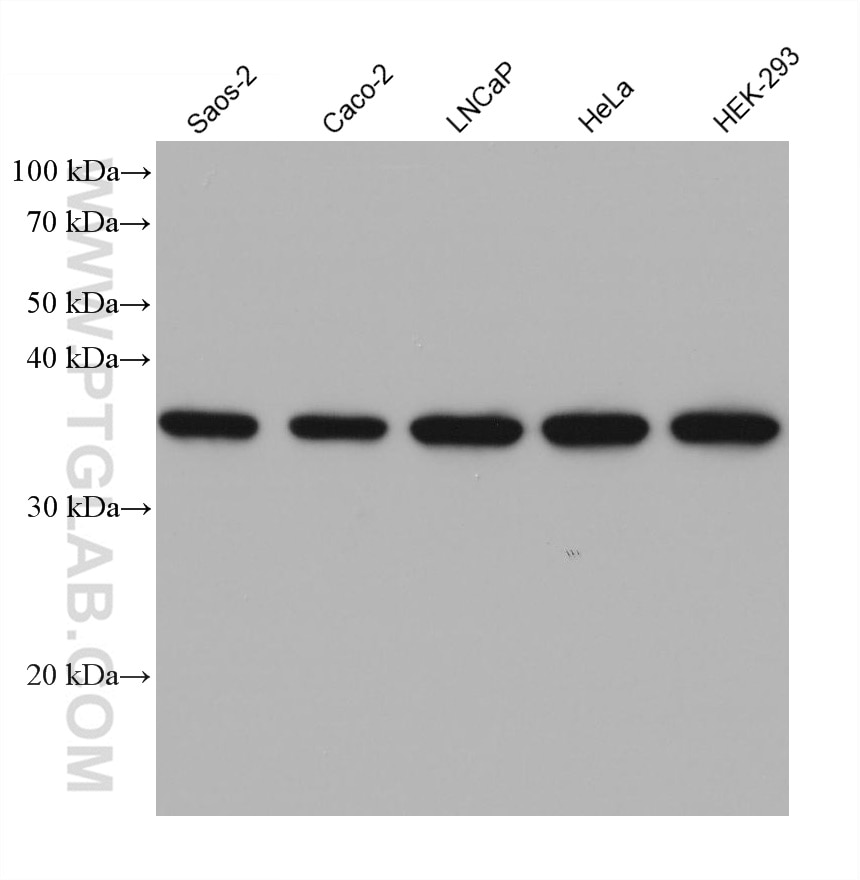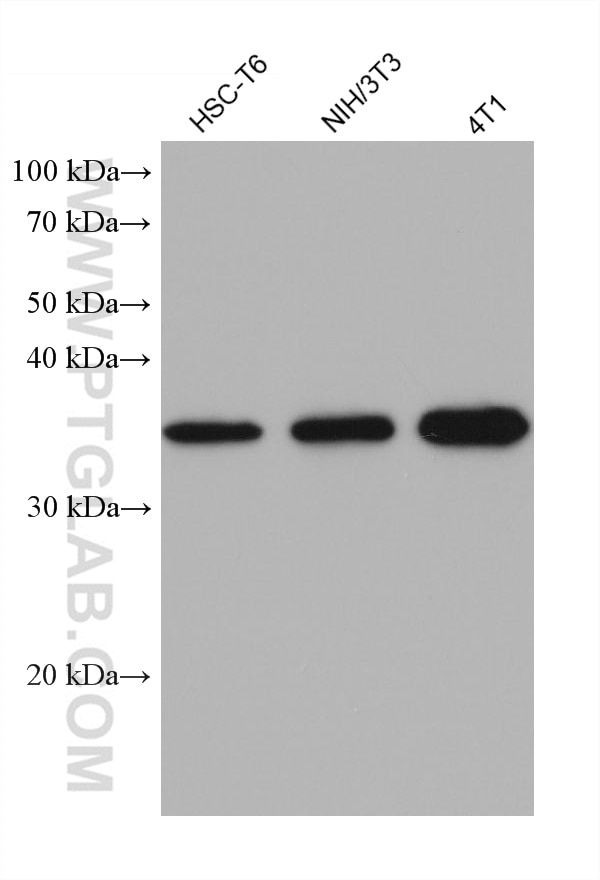EXOSC7 Monoclonal antibody
EXOSC7 Monoclonal Antibody for WB, ELISA
Host / Isotype
Mouse / IgG1
Reactivity
Human, mouse, rat
Applications
WB, ELISA
Conjugate
Unconjugated
CloneNo.
2A4C6
Cat no : 68456-1-Ig
Synonyms
Validation Data Gallery
Tested Applications
| Positive WB detected in | Saos-2 cells, HSC-T6 cells, Caco-2 cells, LNCaP cells, HeLa cells, HEK-293 cells, NIH/3T3 cells, 4TA cells |
Recommended dilution
| Application | Dilution |
|---|---|
| Western Blot (WB) | WB : 1:5000-1:50000 |
| Sample-dependent, check data in validation data gallery | |
Product Information
68456-1-Ig targets EXOSC7 in WB, ELISA applications and shows reactivity with Human, mouse, rat samples.
| Tested Reactivity | Human, mouse, rat |
| Host / Isotype | Mouse / IgG1 |
| Class | Monoclonal |
| Type | Antibody |
| Immunogen | EXOSC7 fusion protein Ag18322 相同性解析による交差性が予測される生物種 |
| Full Name | exosome component 7 |
| Calculated molecular weight | 291 aa, 32 kDa |
| Observed molecular weight | 35 kDa |
| GenBank accession number | BC012831 |
| Gene symbol | EXOSC7 |
| Gene ID (NCBI) | 23016 |
| Conjugate | Unconjugated |
| Form | Liquid |
| Purification Method | Protein G purification |
| Storage Buffer | PBS with 0.02% sodium azide and 50% glycerol pH 7.3. |
| Storage Conditions | Store at -20°C. Stable for one year after shipment. Aliquoting is unnecessary for -20oC storage. |
Background Information
In the nucleus, the RNA exosome complex is involved in proper maturation of stable RNA species such as rRNA, snRNA and snoRNA, in the elimination of RNA processing by-products and non-coding 'pervasive' transcripts, such as antisense RNA species and promoter-upstream transcripts and of mRNAs with processing defects, thereby limiting or excluding their export to the cytoplasm. EXOSC7 also named as RRP42 or EAP1 is a 291 amino acid protein, which belongs to the RNase PH family. EXOSC7 is one of the six RNase-PH domain subunits of the exosome and required for the processing of the 7S pre-RNA.
Protocols
| Product Specific Protocols | |
|---|---|
| WB protocol for EXOSC7 antibody 68456-1-Ig | Download protocol |
| Standard Protocols | |
|---|---|
| Click here to view our Standard Protocols |



